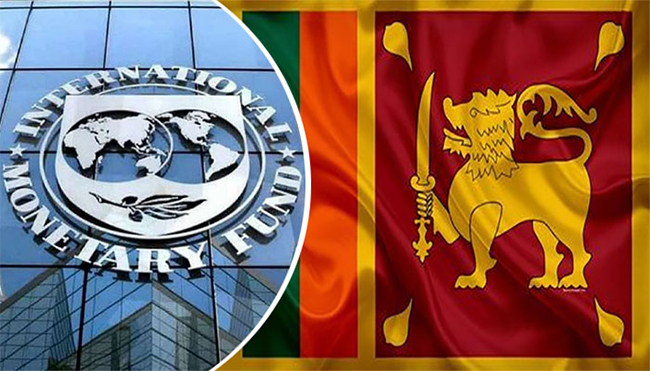Sri Lanka’s economic stability is closely tied to its International Monetary Fund (IMF) program, with reviews conducted every six months to assess the country’s progress on key economic reforms and performance criteria. These reviews determine whether Sri Lanka can access the next tranche of funds from the IMF, critical for the country’s recovery. As Sri Lanka moves towards its next review, scheduled later in October, questions remain about the country’s ability to meet its targets and what might happen if it falls short.
Understanding the IMF Review Process
The IMF reviews the progress of its programs with Sri Lanka every six months. During each review, the country’s adherence to quantitative targets (QPCs) and structural benchmarks is assessed. A successful review leads to a new staff-level agreement, which sets harder targets for the next six months and indicative targets for the subsequent period. The IMF board must approve this agreement, which includes a Memorandum of Economic and Financial Policies (MEFP), a document outlining the country’s fiscal and monetary policies and structural reforms.
After meeting the targets, Sri Lanka receives the next disbursement of about $330 million. Some of the IMF’s structural benchmarks are tied to loans from the Asian Development Bank (ADB) and the World Bank, adding another layer of complexity to the process.
What Are Quantitative Targets?
Quantitative Performance Criteria (QPCs) are core elements of the IMF program. These targets focus on crucial economic indicators, such as foreign reserves, domestic assets, and inflation. Meeting these targets is essential to maintaining stability and avoiding the kind of economic crises that have plagued Sri Lanka in recent years. For example, limits are placed on the Central Bank’s ability to print money, which helps control inflation and prevent foreign exchange shortages.
One of the key performance indicators is the level of reserves. Sri Lanka has historically struggled to meet this target due to monetary policies that aimed to control inflation by printing money, leading to foreign exchange shortages. To pass the upcoming review, the country must demonstrate progress on these fronts.
What Happens If Sri Lanka Misses a Target?
If Sri Lanka fails to meet a QPC, it can request a waiver, provided there is a strong commitment to continuing with the IMF program. Missing structural benchmarks can delay the program, but timelines can be adjusted if necessary. However, if the benchmarks are crucial to the program’s success, the IMF can require them as prior actions for approval of the review.
For example, structural reforms in areas like public sector wages or subsidies might need to be implemented for the program to move forward. The challenge lies in the political landscape, where tax cuts or increased subsidies may be popular among voters but could jeopardize the IMF program.
The Budget and IMF Targets
A critical aspect of the IMF review is Sri Lanka’s budget, which must align with the agreed economic policies and performance targets. As the country approaches its 2025 budget, meeting these targets becomes even more important. Revenue generation is a major focus, with targets set for tax collection, which must increase as a percentage of GDP.
Tax reforms, such as the imputed rent tax or the digital services tax, have been proposed but not yet implemented. These are essential for meeting the IMF’s revenue targets. The IMF is particularly keen on increasing revenues as it views this as a key driver of Sri Lanka’s debt crisis. If these taxes are not legislated, Sri Lanka could fall short of the required revenue levels, risking the success of the program.
State-Owned Enterprises and Debt Restructuring
A significant issue facing Sri Lanka is the debt burden of its state-owned enterprises (SOEs), particularly in the energy sector. SOEs like the Ceylon Electricity Board (CEB) and the Ceylon Petroleum Corporation (CPC) have accumulated large debts, partly due to government subsidies and price controls. The IMF program requires a repayment schedule for these debts, which are a major source of fiscal pressure.
Debt restructuring is another critical element of the IMF program. Sri Lanka’s default on its sovereign bonds means that it must renegotiate terms with bondholders. The IMF is helping guide this process, but without progress on debt restructuring, Sri Lanka risks losing access to financial markets. Bondholders, particularly foreign ones, have significant influence over the success of the IMF program, as they need to see the country as a reliable debtor.
The Consequences of a Missed Review
If Sri Lanka fails to pass its IMF review, the program would effectively be suspended. While this may not be immediately disastrous in a country with monetary stability, Sri Lanka’s case is different. The country’s default status and ongoing need for debt restructuring mean that passing the IMF review is essential for regaining financial stability.
The IMF’s role in Sri Lanka’s recovery cannot be overstated. Without IMF support, Sri Lanka would struggle to complete its debt restructuring and secure the budget support loans needed from the World Bank and the ADB. These loans, though separate from the IMF, are contingent on meeting the structural benchmarks set by the IMF.
In short, while missing a review may not have immediate catastrophic consequences, it could derail the country’s long-term recovery plan, leading to higher interest rates, loss of market access, and more financial instability.
Looking Ahead
Sri Lanka’s next IMF review will be a pivotal moment in the country’s recovery from its economic crisis. The outcome will depend on the country’s ability to meet the quantitative targets and structural benchmarks outlined in the program. As elections loom, political pressures may complicate matters, but the importance of staying on course with the IMF cannot be ignored.
If Sri Lanka succeeds in passing the review, it will move one step closer to financial stability. However, failure to meet the targets could set the country back, jeopardizing its access to much-needed financial support and delaying its recovery.
